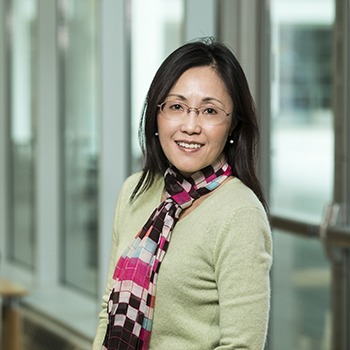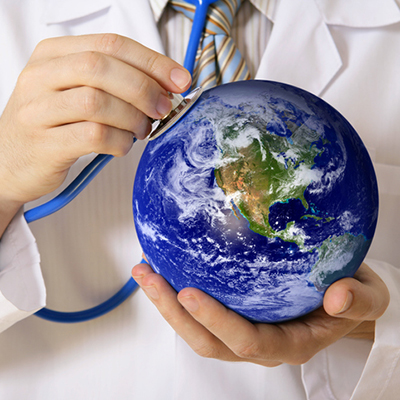Published: August 31, 2023

Human trafficking is a global crime, impacting an estimated 27.6 million individuals each year. And while we might think that trafficking is a problem present in distant locations far from home, the sobering fact is that it is everywhere including in our own communities.
And while I think most are familiar with the existence of some of the perhaps better recognized forms of human trafficking – including sex trafficking and labor trafficking – it might surprise listeners that organ trafficking – in particular, kidney trafficking – is another significant form of human trafficking. In fact, it’s a $1.7 billion industry worldwide.
Joining me to share some insight into organ trafficking, it’s prevalence and impact, and the complications in combatting it, is Naoru Koizumi with George Mason University. A specialist in in medical policies – including those relating to organ transplantation and end-stage kidney and liver diseases – Naoru is leading a team of researchers awarded NSF funding to learn more about organ trafficking and most importantly, how to combat and disrupt the associated supply chains.
I always remember that someone I know in the transplant community once told me that if you allow organ trafficking organ sales as a society we’ll end up with all rich healthy people who have two kidneys while poor people are walking around with just one kidney. That may be a little bit of an exaggeration but the same logic applies to countries. It’s possible to have the situation where rich countries are mostly free from end-stage kidney disease while poor people in poor countries have one kidney, being exposed to a higher risk of kidney failure down the road.
Interviewed this episode:

Naoru Koizumi
George Mason University
Naoru Koizumi is a professor of public policy and associate dean of research and grants in the Schar School of Policy and Government at George Mason University. She specializes in medical policies, particularly in the fields of organ transplantation and the end-stage kidney and liver diseases.
Her research focuses on the applications of various quantitative methods such as biostatistics, Geographic Information Systems (GIS), simulation and mathematical optimization to analyze various clinical and policy questions related to organ transplantation and other chronic disease treatments. Her projects funded by the National Institutes of Health (NIH) and the National Science Foundation (NSF) include simulations and optimizations of organ allocation (NIH-R21) and bed allocation in a mental health system (NIH-R21 & R01), simulation of slum expansion in India (NSF), mathematical/simulation analyses of living donor – recipient matching with desensitization (NSF), and network analysis of illicit kidney trade networks (NSF). Her grant from the Bill and Melinda Gates Foundation investigated effectiveness of ICT-based interventions designed to enhance medication adherence among tuberculosis patients in India.
Before joining the Schar School, Koizumi was a postdoctoral researcher at the Electrical and Systems Engineering Department of the University of Pennsylvania where she worked on various health sector projects in collaboration with the School of Medicine. Outside academia, she worked for several international development agencies (IDB and EBRD) and in private consulting, participating primarily in social and environmental sector projects in Latin America and East Europe.
Koizumi completed her first doctoral program in regional science from the University of Pennsylvania in 2002. The extension of her doctoral research was funded by NIH. Her second PhD (2005) is in environmental and preventive medicine from Hyogo College of Medicine, Japan.
Related Episodes
Episode Transcript
Transcript pending.
Want to learn more? Check out the additional resources and links listed below for more information about what was discussed in the episode.
“Identifying Kidney Trade Networks using Web Scraping Data”, BMJ Global Health, September 2022
About Human Trafficking, U.S. Department of State
NSF, Schar School Study Takes on Illicit Trafficking – of Human Kidneys, George Mason University



